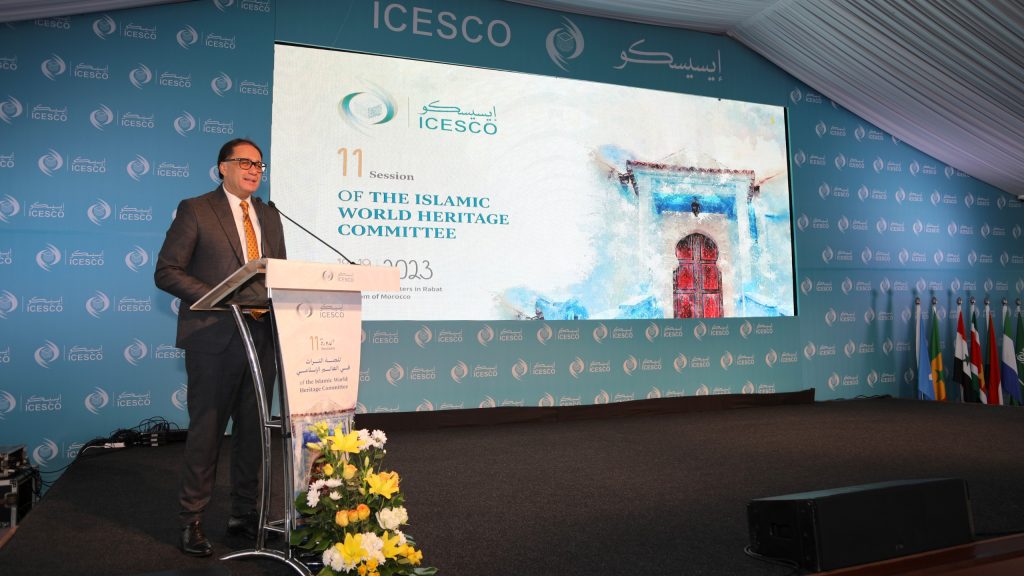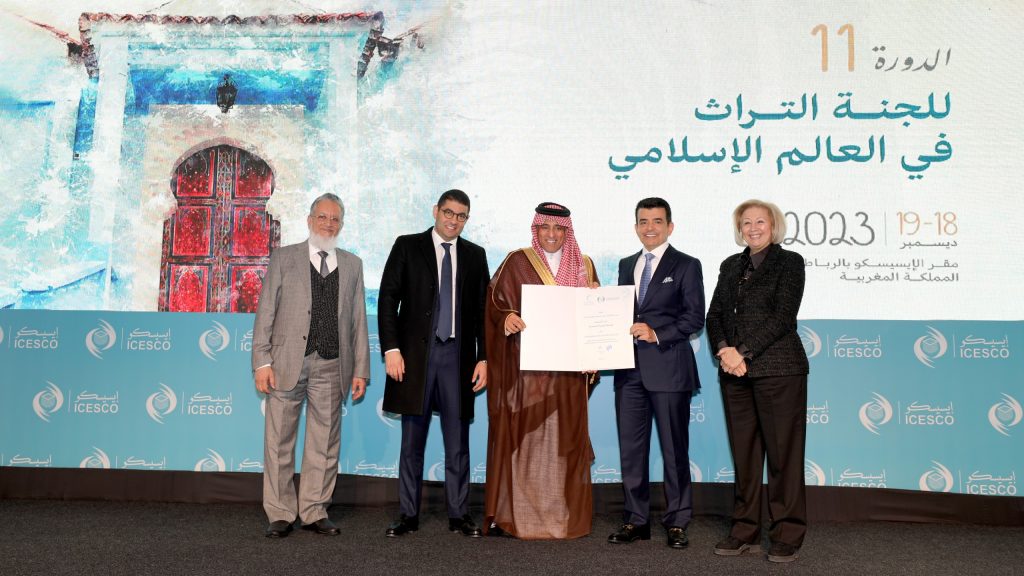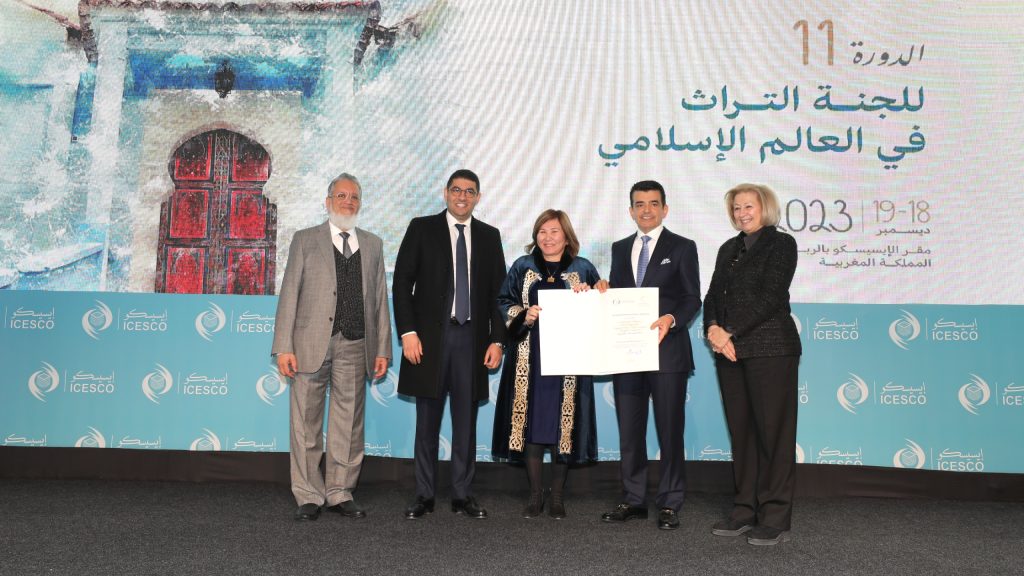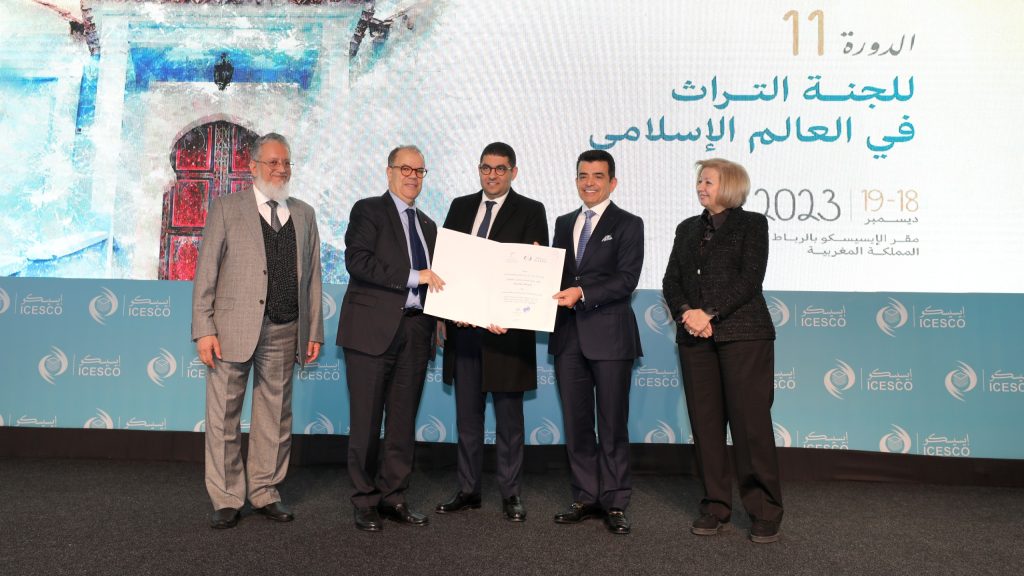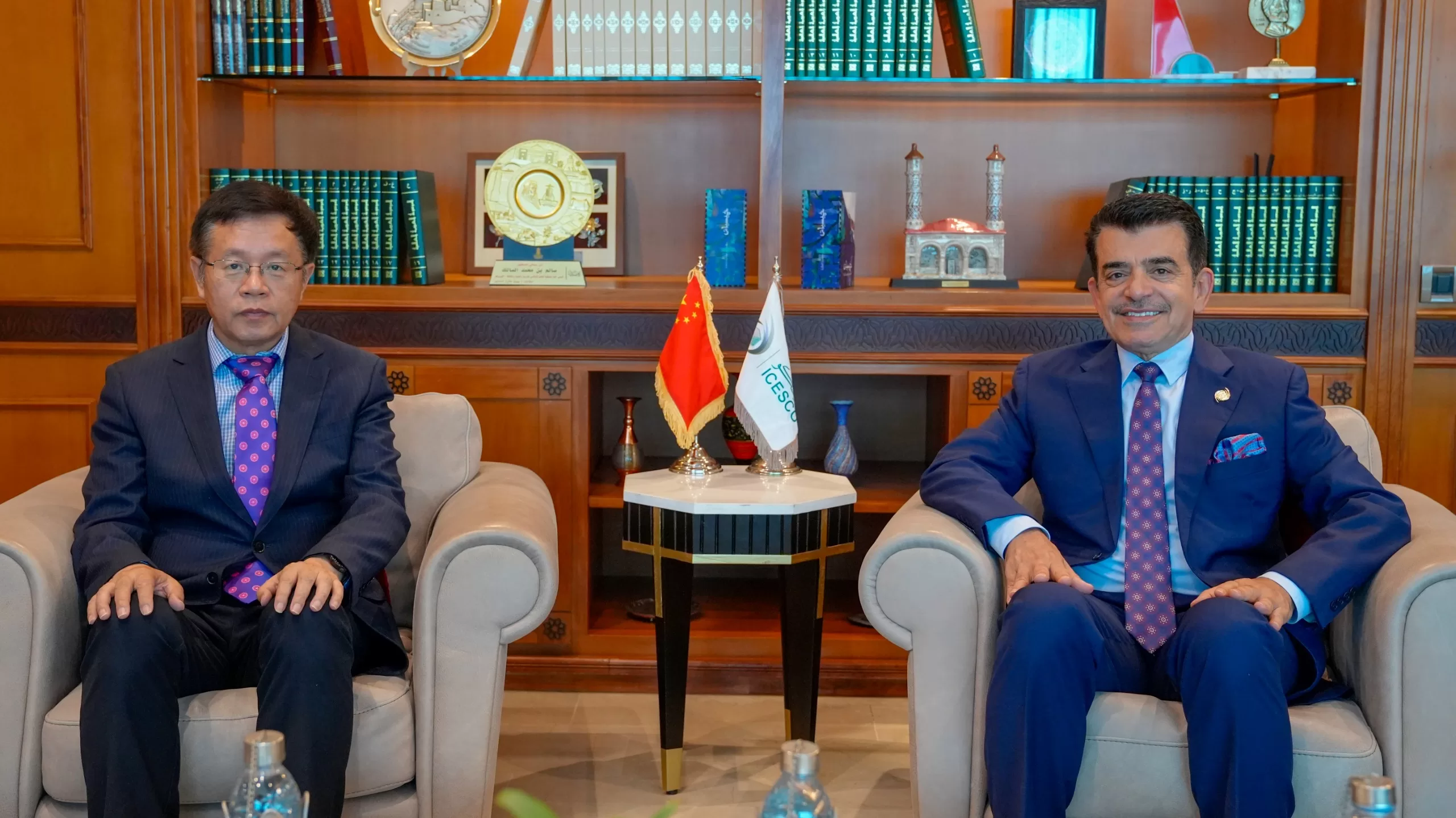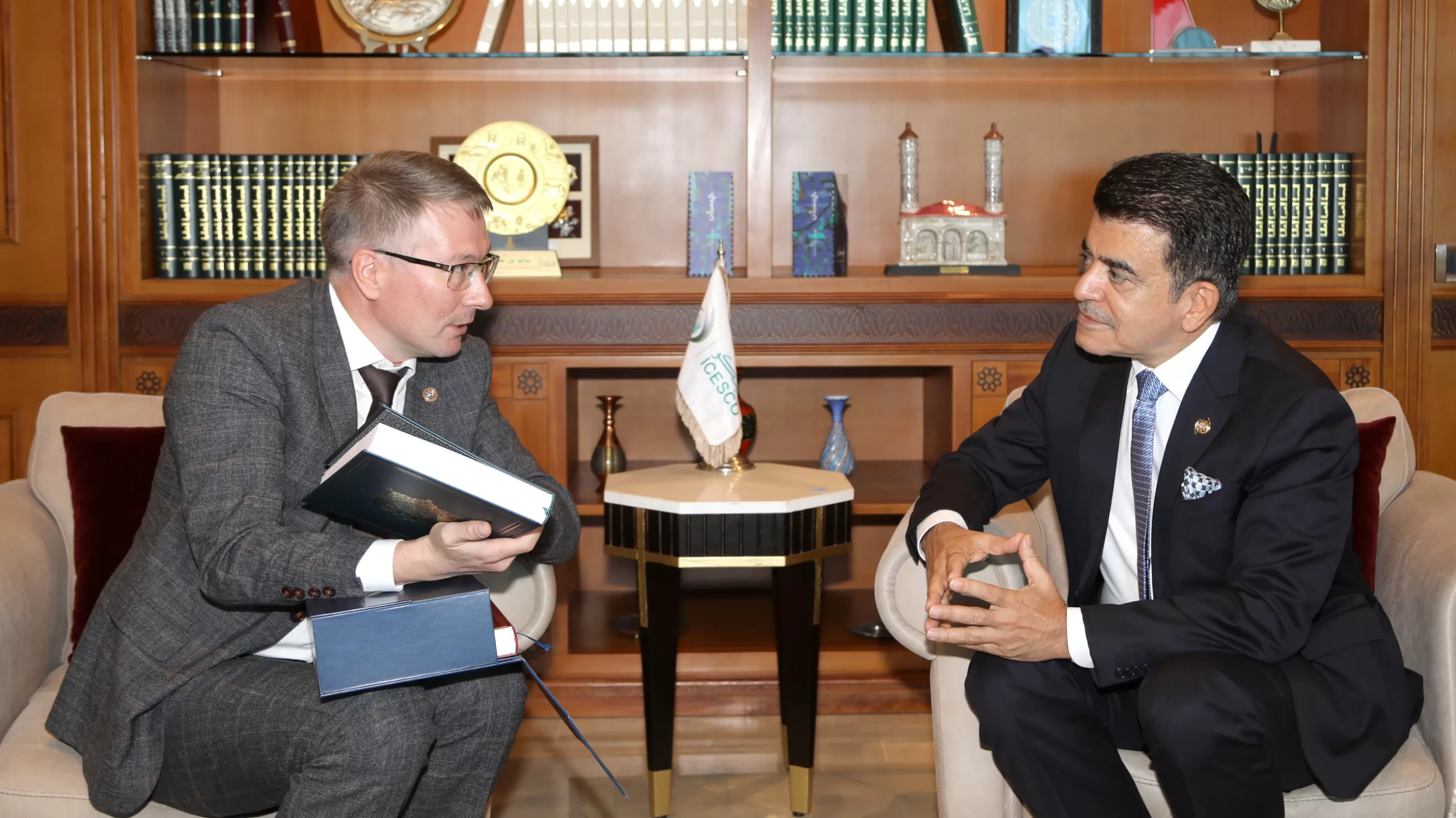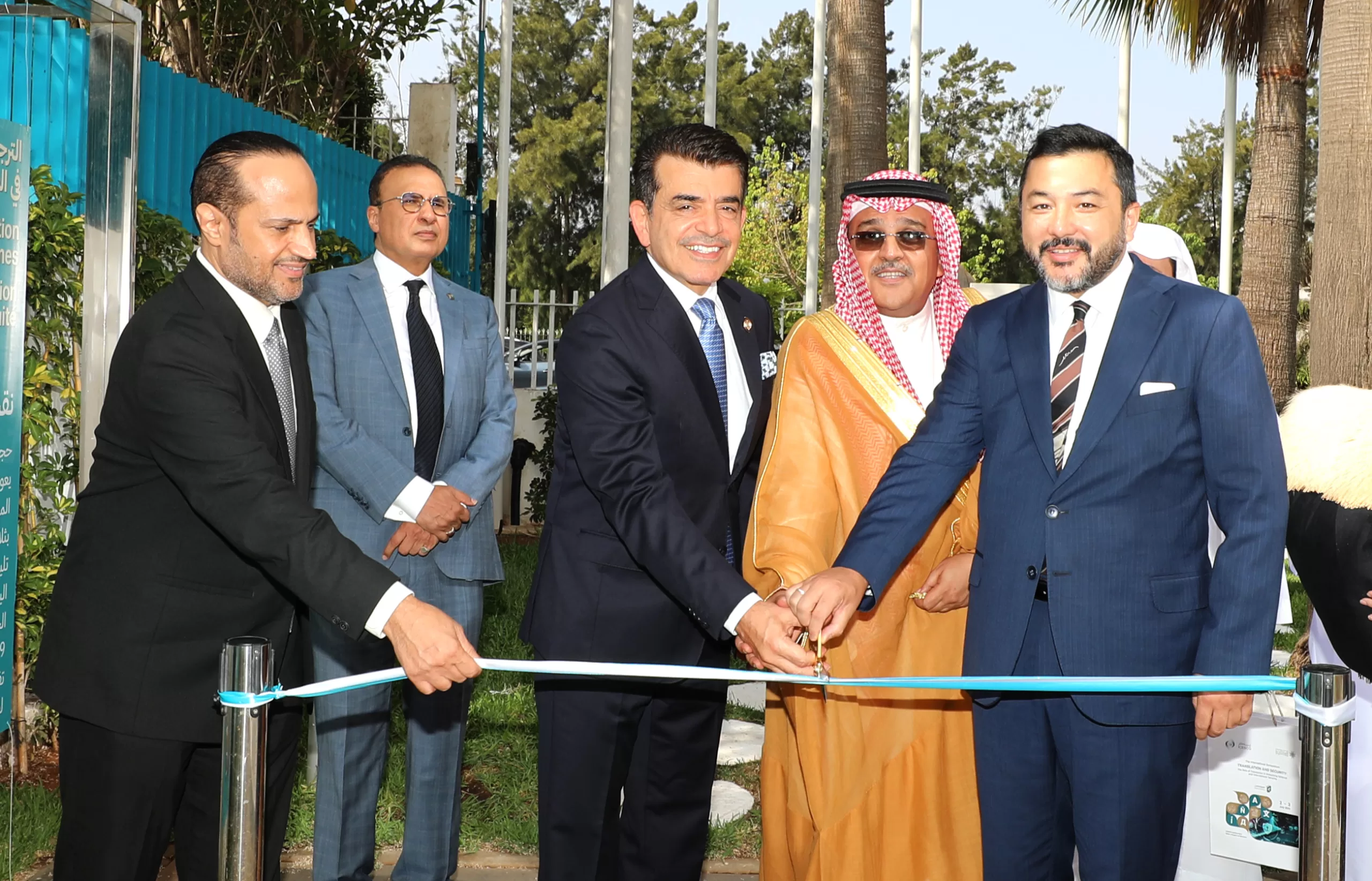
Delivery of Certificates of Inscriptionon ICESCO’s Islamic World Heritage Lists to state representatives
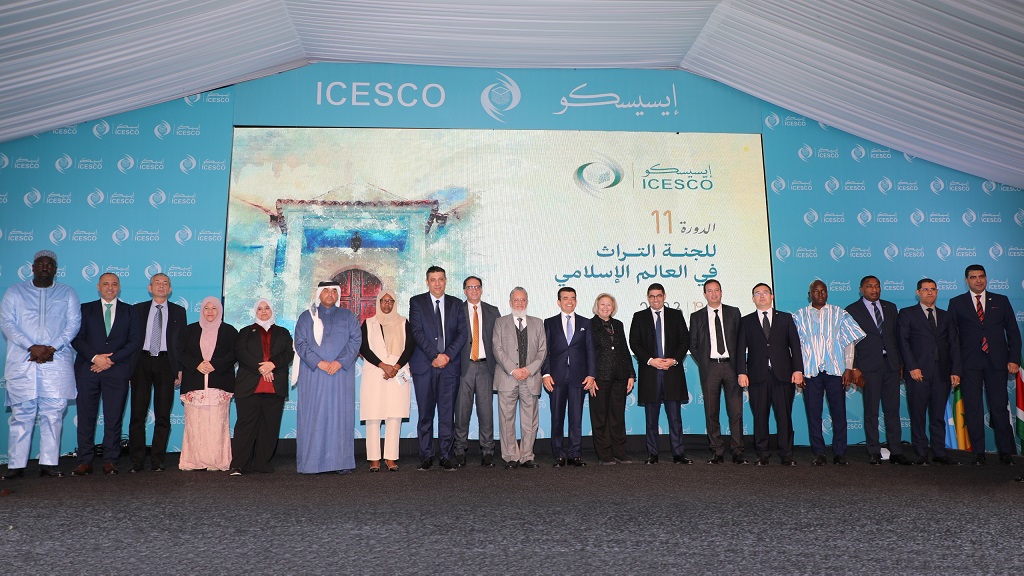
19 December 2023
Today, Tuesday 19 December 2023, knew the delivery of certificates for the inscription of historical sites and cultural elements on ICESCO’s Islamic World Heritage Lists. The recipients were representatives of the states where these sites and elements were inscribed. The Event took place in the presence of high-level dignitaries including ministers, ambassadors, and representatives from accredited diplomatic missions in the Kingdom of Morocco.
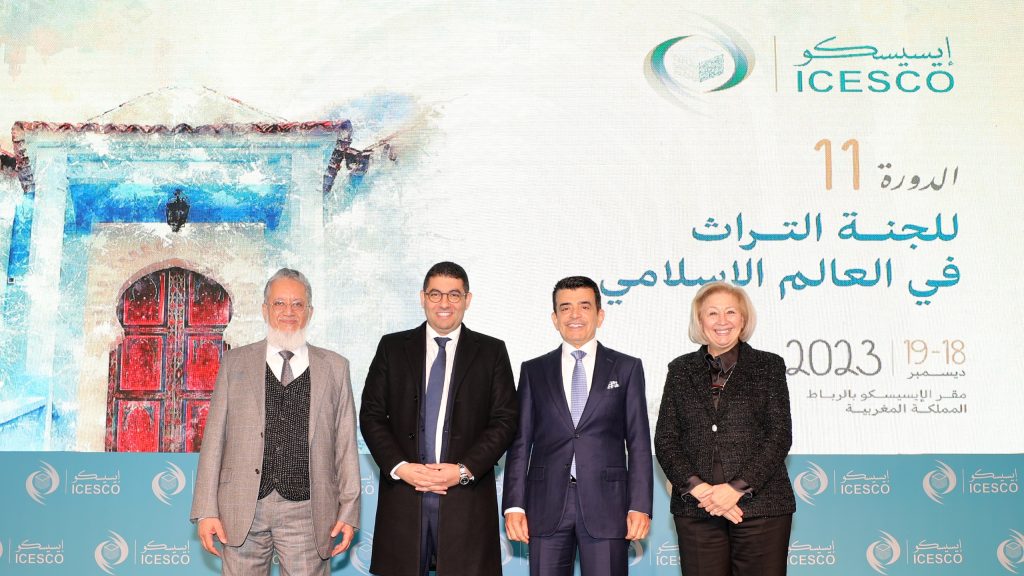
In his opening remarks, ICESCO Director-General, Dr. Salim M. AlMalik, emphasized the Organization’s commitment to safeguarding and valuing the Islamic world heritage, highlighting the cultural wealth it abounds with, and integrating culture into its rightful place; thus, ICESCO espoused a proposal to adopt this initiative as its 18th sustainable development goal.
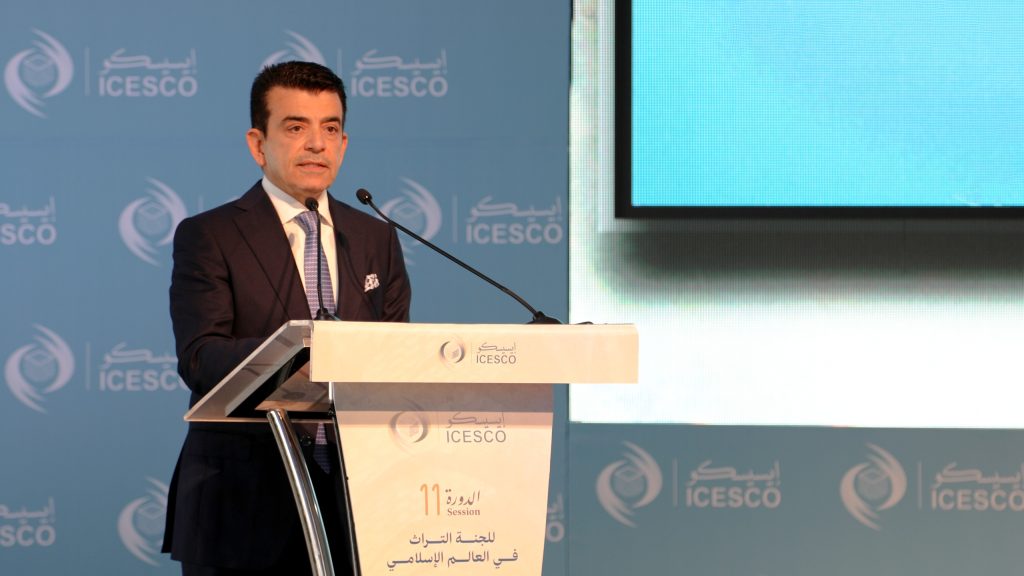
He further noted that ICESCO’s inscription of historical and cultural sites on its lists came in response to the numerous elements threatening their continuation. By 2025, the Organization aims to register 1000 elements on ICESCO’s Islamic World Heritage Lists, while continuing the training and qualifying of youth for the preparation of nomination files, conducting awareness campaigns, initiating heritage site protection measures, and adopting modern technology to preserve heritage.
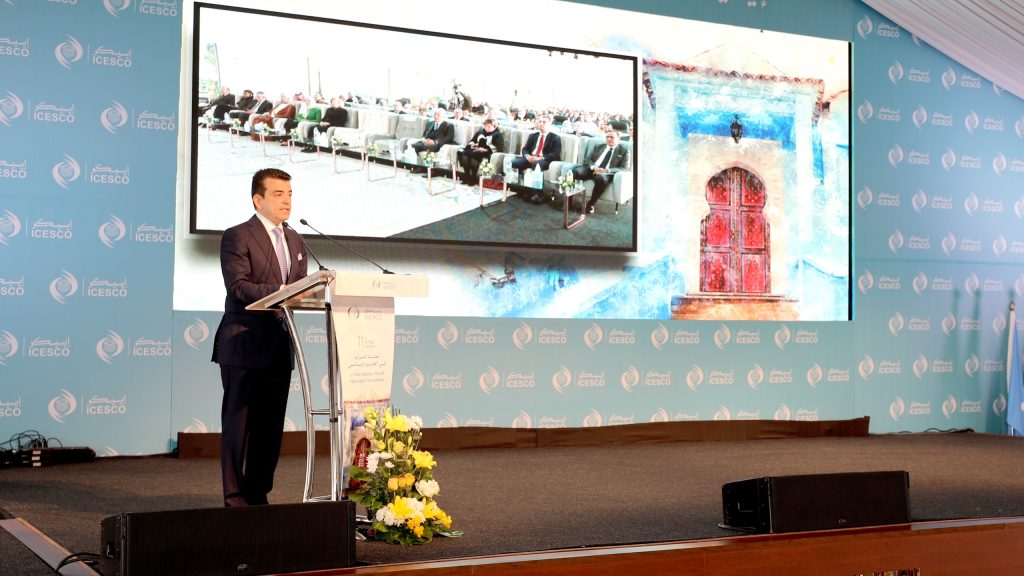
Dr. AlMalik concluded his speech by reaffirming ICESCO’s keenness to collaborate with relevant institutions in Palestine to contribute to the reconstruction and restoration of our enduring heritage in Palestine, which has suffered great damage due to the aggressive, indiscriminate and ruthless destruction at the hands the Israeli occupation.
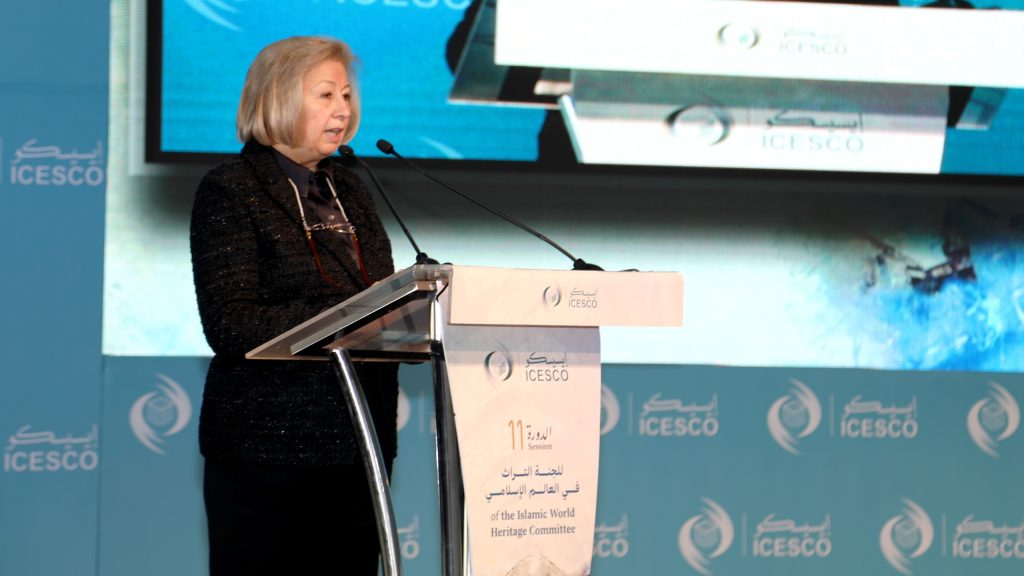
Dr. Mohamed Zinelabidine, Head of the Culture and Communication Sector at ICESCO, highlighted that the establishment of the Islamic World Heritage Center aims to manage, protect, and harness both tangible and intangible heritage.

Following this, Ms. Haifa Najjar, the Minister of Culture of the Hashemite Kingdom of Jordan, delivered a lecture on Arab and Islamic initiatives in intercultural communication, wherein she touched upon the importance of repositioning the Islamic world on the global map through the inscription of tangible and intangible heritage. She also spoke about the “Amman Message” initiative, which aims to present Islam in a rational light, with a view to dispel misconceptions, honor humanity, and promote values of tolerance and coexistence.

In his lecture on the future challenges of heritage in the Islamic world, Dr. Abdelilah Benarfa, Deputy Director-General of ICESCO, shed light on the multitude of challenges facing the preservation and appreciation of heritage, including climatic, geopolitical, and ethical challenges. Dr. Benarfa also emphasized that heritage encompasses cultural and national values that must be safeguarded and reevaluated from new perspectives.

Following that, the new members of ICESCO’s Heritage Committee were introduced, chaired by Mr. Mohammad Al-Aidrous, the representative of the Kingdom of Saudi Arabia.

Subsequently, the Director-General of ICESCO, accompanied by the Jordanian Minister of Culture, and the Minister of Culture, Youth, and Communication, Mr. Mohamed Mehdi Bensaid, delivered certificates for the inscription of historical sites and cultural elements on ICESCO’s Islamic world heritage lists to the attending country representatives.
